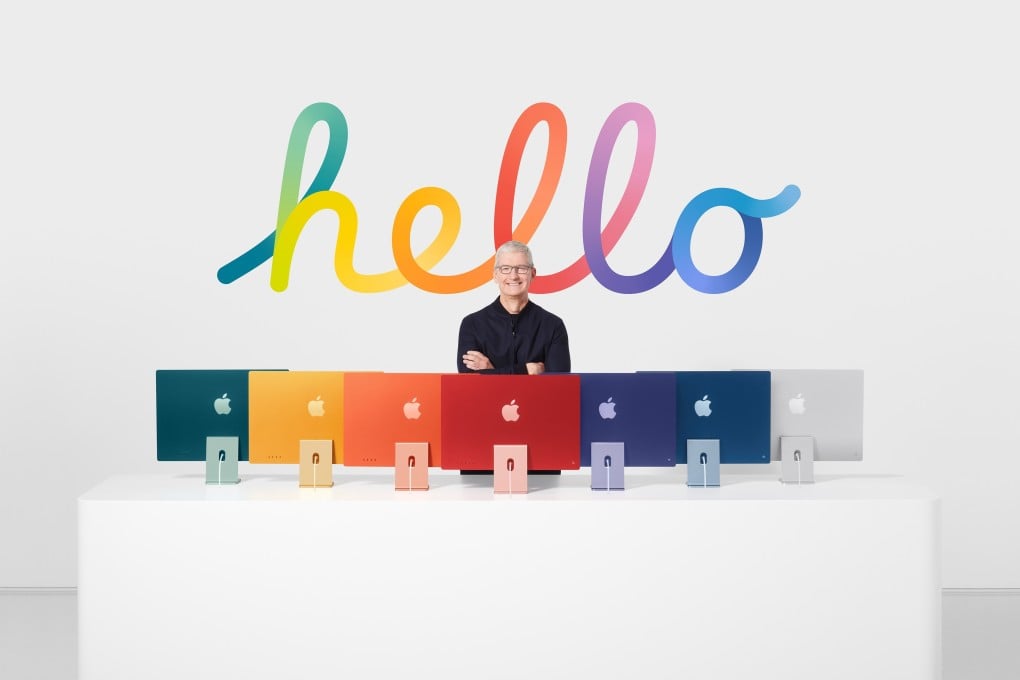Apple packs iPad Pros with faster chips, slims iMacs and jumps into tracking tags
- The Californian giant adds M1 chip to the new iPad Pro, and new cameras to the refreshed iMacs
- AirTag, the company’s new tracking gadget, raises antitrust concerns

Apple Inc announced on Tuesday a range of new computers, a paid podcasting service and devices for finding lost items, signalling the continued expansion of its once-simple product line into more and more corners of customers’ lives.
The new US$30 AirTags, tiny devices that can be attached to items such as keys and wallets to locate them when they are lost, were applauded by analysts as a likely hot-seller that would also keep the company’s more than 1 billion customers locked into its products.
A new iPad Pro tablet, featuring the same Apple-designed processor that powers the company’s more recent Mac computers, has keyboard and trackpad options that help make it a full-blown alternative to traditional laptops and desktops.
And a refresh of the Mac desktop line boasts seven colour options, hearkening back to the famous candy-coloured Macs that helped Steve Jobs revive the company in the 1990s.
The announcements show how the iPhone maker is accelerating the expansion of its product portfolio and working to keep customers committed to its family of devices even as government scrutiny of the power and reach of major technology firms intensifies.
Most of the product introductions had been telegraphed before the presentation, which had no major surprises. Shares of Apple were down 1.3 per cent, slightly more than the 1 per cent drop in the Nasdaq index.
The new iMacs, which start at US$1,299, feature a higher quality front-facing camera and microphone, responding to complaints from consumers during the pandemic that the computer’s cameras had not kept pace with iPhones and iPads during an era of pervasive video calls.